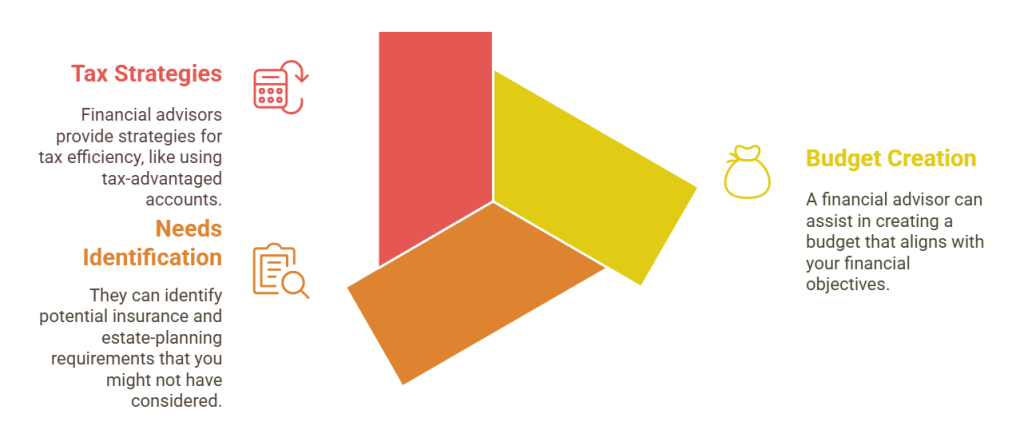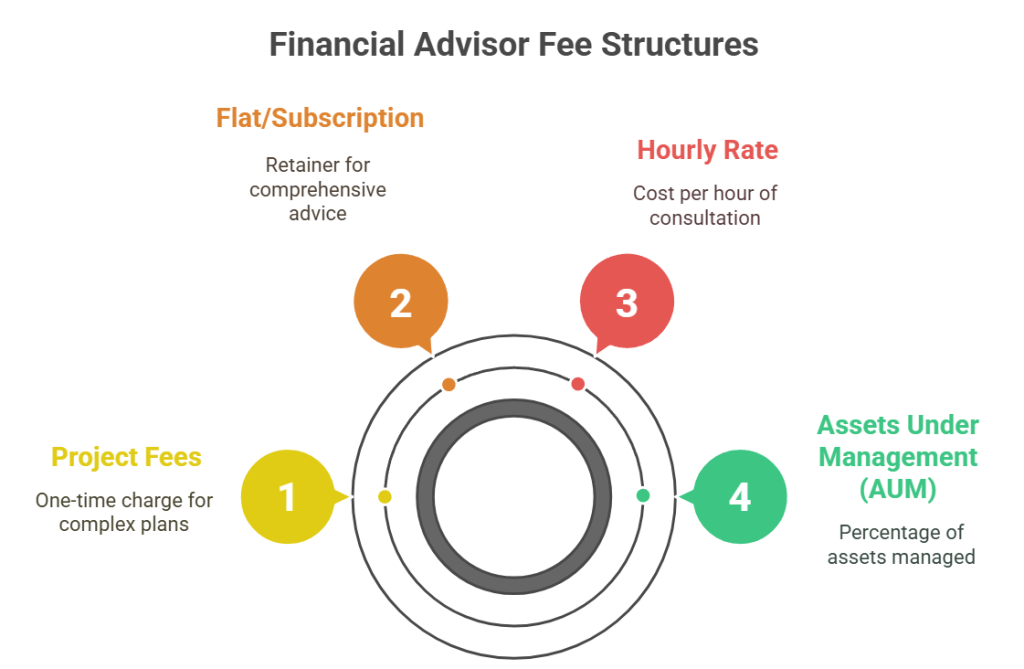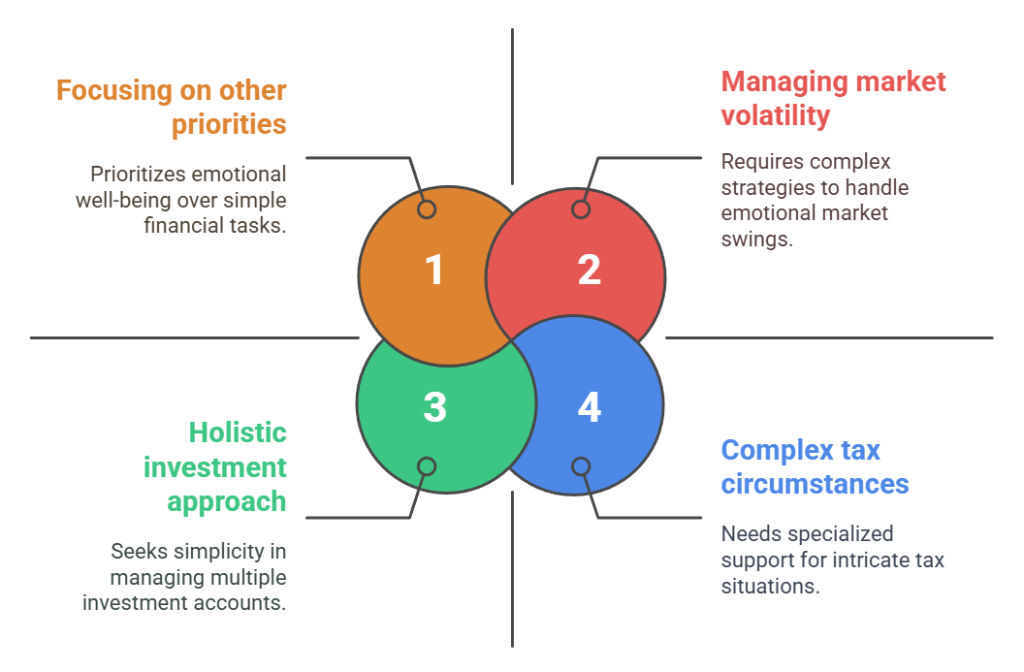
Is It Worth It to Have a Financial Advisor for You?
Explore The Value Of A Financial Advisor
Is it worth it to have a financial advisor? You might be asking yourself this if you have significant assets, want a more strategic approach to your money, or simply feel uneasy about going it alone. Right away, you might also wonder, “How much does a financial advisor cost, do you need a certain net worth, will they really help you save on taxes, how often should you meet, and is hiring one only for complex investments?” The truth is, whether you manage a bustling tech enterprise or have just come into a large windfall, a skilled advisor can guide you toward better decisions, reduce financial stress, and give you peace of mind.
Why Work With A Financial Expert

A good advisor acts like a project manager for your finances. According to Bankrate, they bring discipline to your portfolio and help you handle emotional market swings. Instead of stressing over short-term news or stock volatility, you can focus on other priorities—like running your company or enjoying retirement.
Your advisor can:
- Help you create a budget or spending plan that lines up with your goals.
- Identify insurance and estate-planning needs you may have overlooked.
- Offer strategies for tax efficiency, such as placing certain investments in tax-advantaged accounts (Edward Jones).
- Recommend approaches for major changes like marriage or retirement (Merrill Lynch).
Know Your Advisor Options
Choosing the right advisor begins with an understanding of their compensation models and fiduciary obligations. If you’re comparing local options, you might look for a fiduciary near me, especially one who’s fee-only. This often means your advisor works solely for you without outside commissions.

Fee-Only Vs Fee-Based
- Fee-Only: Earns money only from client fees, such as asset-based charges or flat rates. This structure typically reduces conflicts of interest.
- Fee-Based: Can earn commissions on financial products as well as client fees, which might create incentives to recommend certain products.

Different Costs And Structures
Advisors use several fee approaches:
- Assets Under Management (AUM): You pay a percentage—around 1%—of your investable assets each year (NerdWallet).
- Hourly Rate: Typically between $200 and $400 (NerdWallet).
- Flat/Subscription: An annual or monthly retainer for all-encompassing advice.
- Project Fees: One-time charges for a comprehensive plan, usually around a few thousand dollars depending on complexity.
Your aim is to find an arrangement that balances expertise, cost, and transparency. For more tips on screening professional qualifications, check out choosing a financial advisor.
Weigh The Advantages
So, what exactly makes a financial advisor worthwhile? Consider these potential upsides:
Pack More Punch Into Your Portfolio
An advisor helps shape an investment strategy that fits your risk tolerance and timeline. Whether you’re juggling investments in multiple companies or growing a family trust, a pro can steer you toward a disciplined approach and keep your mind at ease. Market dips are less intimidating when someone’s monitoring conditions and rebalancing your portfolio over time.


Access Specialized Knowledge
Do you have concentrated stock holdings or complicated tax situations? Advisors often coordinate with accountants, attorneys, and estate planners. Rather than sorting it all by yourself, you have a point person for your overall financial blueprint. According to WesBanco, wealth management isn’t just about stocks and bonds, it also includes risk management, estate considerations, and even long-term care planning.
Avoid Emotional Pitfalls
When markets tank, it’s tempting to sell everything. When they soar, you might chase hot stocks. A great advisor helps you stay consistent with your strategy. They’re there to talk you off the ledge and keep you from missing out on long-term gains. After all, it’s not just about making money—it’s also about protecting what you already have.

Mind The Potential Downsides
While many people swear by having an advisor, there are costs and challenges worth noting.
The Cost Factor
Paying someone 1% annually on a large investment portfolio can add up. If you have $5 million in assets, that’s $50,000 a year. You’ll want to be sure you’re reaping real value from that expense. Certain advisors charge flat or hourly fees, which might suit you better if your portfolio is quite large or your situation is straightforward.


Conflicts Of Interest
Not all advisors are fiduciaries. If an advisor is fee-based (instead of fee-only), or if they earn commissions from selling financial products, they might be motivated by those product sales. You can spot potential issues by asking about how they’re compensated and whether they have any obligations to specific organizations or funds.
Decide If It’s The Right Fit
So, is it worth it to have a financial advisor? For many high-net-worth families and individuals, the time saved, professional guidance, and big-picture outlook can more than justify the fees. Here are a few signs you may want to hire one:
- You have multiple investment accounts and want a holistic approach.
- You’re anticipating or experiencing a major liquidity event.
- You’re juggling complex tax circumstances and need specialized support.
- You’re dealing with emotional ups and downs during market swings.
- You simply want to focus your energy on something other than day-to-day money management.

If you’re unsure, consider starting with a smaller engagement, such as paying for a one-time plan or an hourly consultation. That way, you can gauge the value before committing to a long-term relationship. Another smart move is to list out things to ask your financial advisor so you can feel confident from day one.
Final Thoughts
Having someone in your corner who understands your goals and concerns is powerful—especially if you’re managing significant wealth. By partnering with an experienced advisor, you can worry less about daily market hiccups and devote more attention to what really matters in your life. It’s like handing over a batch of tasks to a trusted expert, letting you spend your energy on a thriving business, family pursuits, or simply enjoying the moment.
Ready to take the next step? Review potential advisors carefully, clarify their fee structure, and confirm if they’re a fiduciary. With the right fit, you’ll have an ally who helps you stay on track, protect your assets, and nurture a long-term vision for your money. In the end, the question isn’t just “Is it worth it to have a financial advisor?” but rather, “How much can I grow my wealth and peace of mind by getting professional help?”
Recent Posts
Financial Advisors in Los Angeles to Consider
Finding the right financial advisor can be a pivotal step...
Financial Advisors in New York to Consider
Selecting the right financial advisors in New York can play...





